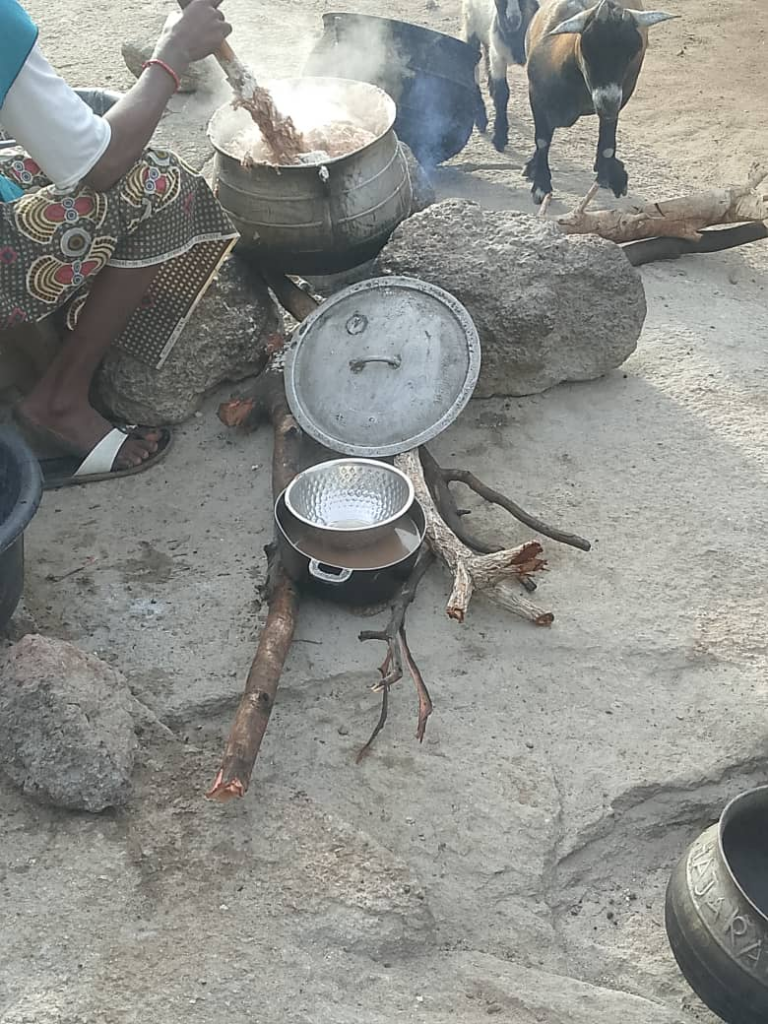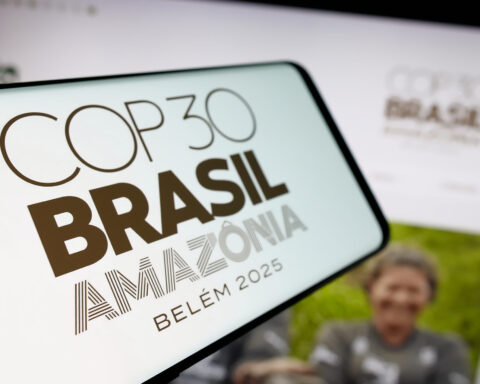In the sky above Ebute-Metta’s Jebba Street, the stars have stolen the show, and the moon is in the spotlight. The community’s transformer, which supplies electricity to the community, has remained damaged for six months.
The moon’s light is never enough, and the residents must rely on an alternative electricity source. From almost every corner of the street, the sounds of generators can be heard.
Michael Kolawole, a resident of the community, comes out of his home to put on his generator. The noise from his generator adds to the noise from those of his neighbours.
He detests the noise, but he has to endure it because his need for electricity supersedes his distaste for generators.
He has been relying on his generator as an alternative source of electricity for the past seven years.
“I have been using generators as an alternative source of power for the past seven years. As a child, my parents were also heavily reliant on generators. I do not like it. If I had my way, I would go for solar,” Kolawole told FIJ.

He is one of the millions of Nigerians who rely on backup generators for 40 percent of their electricity needs.
Electricity provided by electricity distribution companies is mostly unstable, forcing many Nigerians to adopt an alternative source of energy. Apart from the unreliable nature of discos, a World Bank publication published in 2022 revealed that 92 million Nigerians are not connected to the national grid. Those who can afford an alternative power source are also forced to rely on generators.
DESIRABLE BUT COSTLY
Generators emit tonnes of carbon dioxide into the atmosphere, contributing to the country’s carbon footprint. As of 2022, the country’s carbon emissions for the year was 128.76 million tonnes.
They are not the only alternative power source, but they are the most common in many Nigerian homes.
Another alternative power source are solar inverters, a form of clean/renewable energy that emits zero carbon dioxide. It is noiseless and doesn’t emit smoke like generators, which makes it desirable.
Although desirable, it is costly.
Over the years, the Nigerian government has pledged to cut the country’s net emissions to zero by 2060. One such pledge was made by Muhammadu Buhari, Nigeria’s immediate former president.
Mubarak Shoaga, a solar inverter installer, told FIJ that it would cost Nigerians about N1.9 million to install solar inverters that would power the same appliances that electricity from discos and generators powers in an average home.
He added that they were less expensive in previous years but the prices have skyrocketed because of the exchange rate.
“The cost was around N750,000 and N800,000 in previous years. The majority of the components that make up solar inverters are imported products, and the exchange rate usually determines the cost,” said Shoaga.
With the current minimum wage of N33,000, it would take a Nigerian earning this amount several years to be able to afford solar inverters.
Corroborating this, Emmanuel Kilaso, an environmental and climate change advocate, told FIJ that solar energy as an alternative power source is unaffordable for many Nigerians.
“Solar energy is unaffordable for many Nigerians, particularly in this era where there is so much discourse on transitioning to clean energy. Also, now that purchasing power is low, supplying steady electrical energy into your home using renewable energy sources like solar inverters is not affordable for the average Nigerian,” said Kilaso.
CHARCOAL AND FIREWOOD VS GAS COOKERS
Sitting on a wooden stool was Nasirudeen Yayi, a woman in her thirties and resident of Okuta, a community in Kwara State.
In front of her were three large stones, some pieces of firewood and a pot. She was preparing lunch for her family and had made the fire for cooking, but the embers were starting to die.
When she bent to fan the embers, she was surrounded by wisps of smoke. The smoke got into her eyes, and she squinted painfully. When she opened her eyes, they started to redden, and a tear escaped from her right eye.
This is a daily experience for her. She does not enjoy it, but it is all she has ever known.
“The problem I have with firewood is that you cannot leave it to attend to other things. You have to sit amidst the smoke and fan the fire. Cooking with firewood affects my eyes. Sometimes, tears drop from my eyes because of the smoke,” she told FIJ.

When this reporter asked her why, despite the pains associated with cooking with firewood, she still used it, she said the price of cooking gas and gas cylinders was her greatest challenge.
“The price of cooking gas and cylinder hinders me from stopping the usage of firewood for cooking. Cooking with gas is very easy and conducive. All you need to start up a fire are matchsticks. But I cannot afford the price of gas cookers,” Yayi added.
Like Yayi, many Nigerian women rely on firewood to cook.
The firewood these women use for cooking is sourced from felled trees. Nigeria has lost about 1.14 million hectares of its tree cover to deforestation, significantly contributing to climate change.
Trees absorb carbon dioxide, a greenhouse gas that contributes to climate change, and when burned for cooking, they release carbon into the atmosphere.
Apart from the damage cooking with firewood does to the environment, it also has potential health risks.
According to the World Health Organisation, women using firewood face increasing health risks such as respiratory diseases, natal complications and heart diseases. It can also result in the premature deaths of children.
IS GAS COOKERS A CLEAN ENERGY SOURCE?
There have been debates on whether gas can be regarded as a clean energy source because they are derived from crude oil, a fossil fuel.
Olasupo Abideen, the founder of the Brain Builders Youth Development Initiative, a non-governmental organisation focused on youth and climate advocacy, said gas cookers are a better form of energy when compared with cooking firewood.
“Clean energy sources are not affordable for Nigerians at the moment. The cost of Liquefied Petroleum Gas (LPG) is also on the rise. They used to cost about N300 per kg a few years ago but have now risen to N1,000-N1,500,” said Abideen.
According to Kilaso, gas can also be found underground.
“When drilling the earth, you can come across gas, and instead of releasing it into the atmosphere, they can be trapped into containers and used for cooking,” Kilaso told FIJ.
Abideen described the unaffordability of LPG as energy poverty. He added that it has far-reaching consequences.
Kilaso also shares the same opinion.
“Almost everything is a luxury for an average Nigerian, including cooking gas. Because people cannot afford it, they will look for cheaper alternatives. I have seen a lot of people using charcoal and firewood to cook because that is even more affordable for them,” he told FIJ.
“If many people go back to this method that we are collectively trying to escape from, it means lots of trees will be felled. Trees that are meant to absorb carbon would be used to cook and emit more carbon. Our carbon footprint will double.”
MAKING CLEAN ENERGY AFFORDABLE FOR NIGERIANS
Kilaso said that manufacturing the components of solar inverters in Nigeria will reduce their costs and make them more affordable for Nigerians.
“Solar panels should be manufactured in Nigeria. This will make them more affordable. Also, the Nigerian government can borrow a leaf from the Chinese government. Some years ago, the Chinese government sent some youths to developed countries to learn how some technologies were manufactured, and they returned home to produce them after they had got the knowledge,” he said.
He added that renewable energy should be subsidized, thereby making it more affordable for many Nigerians.







